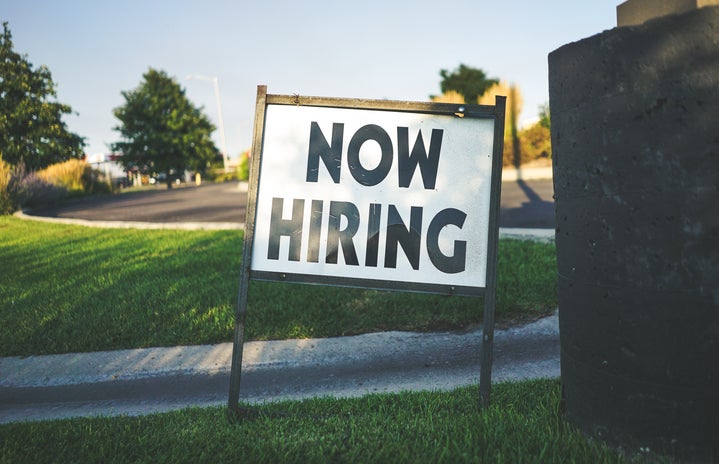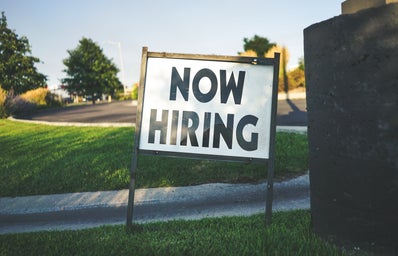Edited by: Sophia Savva
Sitting in the upper level at Convocation Hall has many advantages:
1. More leg room
2. Less people
3. You could probably get away with some shut eye, especially when a 10 AM is just not your cup of tea.
However, sitting in the upper level of my Intro to Politics course left a lot more eye-opening concepts running through my head.
As my POL101 professor talked about futuristic solutions to extractive policies in Peru, I started to think about the demographics of the students in the course. Most of these students were here because it was a prerequisite leading to their enrollment in a Political Science program, and eventually a career in policy-making. Why was there a significantly larger amount of men in the course? Did the gender gap in this course reflect that of parliament? After researching the statistics comparing gender and sexual diversity in political careers, I became aware of the drastic imbalances present in the House of Commons. Despite over 50% of the Canadian population being women, a mere quarter of them are represented in government.
Luckily, my local member of parliament, Jennifer O’Connell happened to be one of those women, and was willing to talk to me about the motivations, barriers, and experiences she has had as a woman involved in politics. Jennifer O’Connell is the Member of Parliament for both Pickering and Uxbridge. She graduated from the University of Toronto, with a specialist degree in Political Science, leading her to becoming one of the youngest elected politicians in her municipal ward.
Q: In the words of Jane Taber, writer for the Globe and Mail “Life for women in politics is tough”. This rhetoric is very easy to internalize, ultimately taking a toll on self-confidence. I was wondering if you could reflect on your personal history, and could talk about what motivated you (and kept you motivated) as you became politically engaged.
Jennifer O’Connell (JO): Hearing comments from members of the senior staff such as “We’re not going to let those bitches tell us what to do,” set a very interesting tone for me. Hearing that from the staff who ultimately report you or are supposed to work for the citizens that elected us definitely did not feel so good. But, I let this motivate me because, in response, I thought, “Well yeah? Watch.” So, I used this motivation to emphasize that I got elected just like everybody else there and used the time they spent underestimating me, to put my head down and just get really busy. By not focusing on the negative comments, I was able to prove them wrong, because my community really started to support me, so it really gave them no choice but to get behind it and start to support me too. I even have this one story of a councilor who was particularly brutal to me behind the scenes. Progressively, he started having constituents come up to him saying things like, “Oh, you’re so lucky to work with that young woman, and she’s really doing a great job.” Then with that sort of reaction from his constituents, he would respond things like, “Oh yeah! I love Jennifer.” So that shift really stems from public support which motivated me and helped make that ‘old boys club’ kind of break up a little bit.
Q: Do you find that your motivations mirror those for most women in politics?
JO: I think so, yes. I think for a lot of women the motivation is just that they see politics as a place for anyone, and when they get into it, they really want to make a difference. I think that’s really why everyone runs, both men and women. Maybe, it’s not until you hear some of the comments and barriers that you start to face as a woman that it begins to shock you a little. (It even shocks me now after being in the political realm for 13 years!) So that is probably motivation.
To be honest, the biggest motivation is usually the people we are here to represent. You can block out a lot of noise when you have a different purpose. Usually people run because they want to make a difference with something, whether that be your community, or a certain cause (maybe even women’s issues) so it is easier to block out that noise when you focus on something frankly much more important. When you focus on what you really want to do, it makes things a lot easier.
Q: Women face contending expectations regarding their position in politics. According to a study published by the University of Guelph: women often hold back their leadership skills because they are judged as being bossy – rather than allowing this to be a positive quality – such as being assertive. Have gendered expectations impacted your career, if so, in what way?
JO: They might have, and I just haven’t noticed. I think in my municipal career behind my back, I was called a bitch quite often because I didn’t really hold back. But really, this was the only way for me to be heard and taken seriously even after winning many elections by my colleagues. So, is that something that people behind my back see negatively? Maybe. But from my community’s perspective they appreciate someone fighting for them. So I think you have to have an assertive personality in that regard with this business.
I think it is true where men are considered opinionated, forceful or strong, a woman is considered mousey. But I think this is more of how the media portrays women leaders. I find that my style is tough but people usually appreciate it, because I always come from a place where I’ve done my research. If I’m fighting for something it is because I’ve done the work and not because I’m being difficult. But again, I’m not entirely sure how people perceive this behind my back.
I think maybe subconsciously gendered expectations affect how I come across and how I speak, but at the end of the day if I’m really passionate about something, I’m not thinking about how it comes across; I’m mostly worried about tackling my issue. But unfortunately, media’s descriptions of women in politics haven’t really evolved that much. I definitely think this is an area that needs to change or women will start to back away from politics to avoid these labels.
Q: Do you feel like media’s portrayal of women in politics undermines your achievements and your education?
JO: For sure, I’ve had a lot of comments about what the way I look, how I wear my makeup and whether or not my hair is too blonde. But my male colleagues have never been subject to that. For men it doesn’t matter what they look like in politics but for women, for some reason, it really matters. I think this has to do with an uncomfortableness with women in the space and they don’t really know how to deal with it so appearance is the first thing they think about it. People are used to seeing people of a certain gender, socio-economic background and age dominate the political realm so having women occupy the space creates a perception barrier. It’s not right and it is certainly not fair.
I found it very interesting in the last election, for the first time a male politician did get a lot of scrutiny on the way he looks, and that was the Prime Minister. The media was talking about his hair and the way he dresses. These were deemed as unfair criticisms which were honestly ridiculous. But not a lot of people made the parallel that this was what women have to go through all the time.
Q: What does the glass ceiling mean in the context of women in politics? Does it still exist? Is there a place where you find women tend not to succeed?
JO: I’ve said this before and I’ll say it again, I think there has not been a better time to be a woman in federal politics. There has been a real focus by our Prime Minister and the people around him to focus on women’s issues, to have gender parity in cabinet and always be conscious that women were around the table. Coming from a municipal government, to this, where these conversations weren’t happening, definitely felt like night and day for me.
I know the glass ceiling still exists, I’m not naive, but I see a lot of progress. For me as a woman in the Liberal Party right now, under this Prime Minister, I feel very empowered. I know there are still barriers but I feel like we have come a long way. To have gender parity in cabinet is a major measure pertaining to who is around the table and who is being heard. I feel like these opportunities exist here. Where we are right now, in terms of the Prime Minister and cabinet issues, I feel like we are breaking that glass ceiling and any woman who wants to move up has those opportunities available to her.
Q: Would you agree with the fact that the political field has changed for women, and we are seeing progress?
JO: I think so. I think the fact that we are having these conversations, and things like the #MeToo movement mean that we are getting somewhere. I know we are not there yet, but I think the point of breaking the glass ceiling is frankly going from saying, “Oh, she’s a good politician as a woman” to saying “Oh, she’s such a good politician.” So, I see those things starting to happen, and I think these conversations have to keep happening.
Q: If you had one piece of advice for aspiring female politicians is there anything you would like to them?
JO: When I got elected, I was very frustrated because I was being underestimated, and not taken seriously, and it was starting to take a toll on me. One of my mentors told me to cherish the time I’m being underestimated. While you are being underestimated, you can spend time working for your community. It won’t be long before they stop underestimating you, but until then, you can do a lot of things you hope to accomplish. During this time I was able to build support, and plan where they didn’t see it coming, until it was too late. Use being underestimated to your advantage, because when you put your head down, do the work, you will eventually give them no choice but to treat you as an equal.


